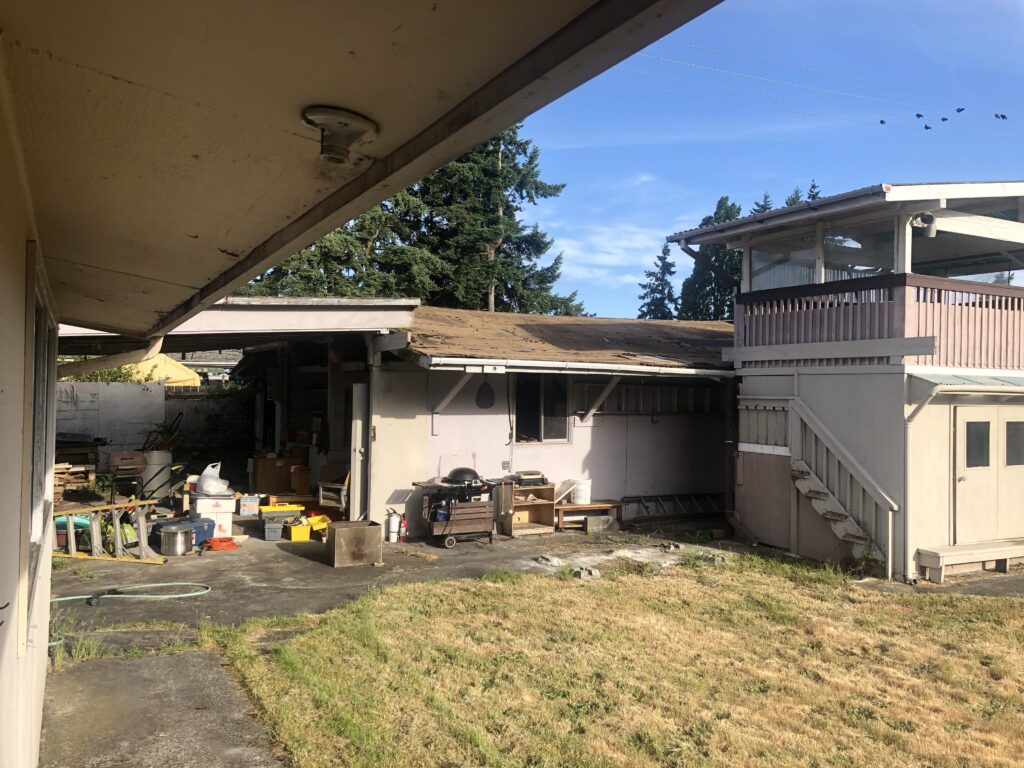Inheriting a home or property can feel like both a gift and a burden. On one hand, it may carry sentimental value and represent a meaningful legacy. On the other hand, selling inherited property often comes with layers of legal, tax, and emotional complexities that many homeowners don’t anticipate.
If you’ve been wondering how selling inherited property works, the good news is that you don’t have to navigate it blindly. With the right information, you can avoid common pitfalls and make confident decisions.
In this guide, we’ll break down everything you need to know about selling inherited property step by step. You’ll learn:
- How the probate process impacts your ability to sell.
- What tax considerations (like step-up in basis and capital gains) mean for your bottom line.
- How to handle situations with multiple heirs or joint ownership.
- The main selling options — from traditional listings to working with local cash home buyers.
- Practical tips to simplify the process and reduce stress.
By the end, you’ll have a clear roadmap to move forward, whether your priority is speed, profit, or simply finding the smoothest path through a difficult situation.
What Does Selling Inherited Property Involve?
When a loved one passes away, their assets — including real estate — are transferred to heirs through a legal process. Inherited property typically refers to homes, land, or other real estate passed down via a will, trust, or probate court. While receiving property can be valuable, selling it often requires navigating legal steps and family dynamics.
Common Scenarios When Inheriting Property
- Single Heir Ownership: If you’re the sole heir, the process is generally more straightforward. Once probate (if required) is complete, you have the right to decide whether to keep, rent, or sell the property.
- Multiple Heirs: When several heirs inherit the same property, all parties must agree on the outcome. One heir might want to sell, while others may want to keep the property. This can lead to negotiations, buyouts, or even legal intervention if consensus isn’t reached.
- Property in Probate: If the property is still tied up in probate, you may not be able to sell immediately. Probate is the court-supervised process of validating a will and transferring ownership. The timeline varies depending on state law and the complexity of the estate.
For a deeper dive, check out our related guide on Selling a House in Probate
The Probate Process and Why It Matters
When you inherit property, one of the first hurdles you may face is probate — the legal process that ensures a deceased person’s assets are transferred correctly. Probate matters because it sets the timeline for when you can sell the property and who has the legal authority to make that decision.
Probate Basics
- Validating the Will: The court confirms that the will is legitimate and reflects the deceased person’s wishes.
- Appointing an Executor: The court assigns an executor (or personal representative) to manage the estate. This person handles debts, taxes, and the distribution of assets.
- Distributing Assets: Once obligations are settled, the executor distributes property to heirs, which may include transferring title of a home.
State Variations and Timelines
Probate rules and timelines vary widely by state. In some areas, a simple probate can take just a few months, while more complex cases can stretch on for a year or more. States with streamlined “small estate” processes may allow heirs to bypass full probate if the estate’s value is below a certain threshold.
When There’s No Will
If no valid will exists, the estate is considered intestate. In this case, state law decides who inherits the property, typically prioritizing spouses, children, and close relatives. This often makes selling more complicated, since multiple heirs may need to agree before the property can be sold.
In urgent cases — like when foreclosure is looming — probate delays can create serious problems. If you’re in this situation, you might want to review our guide on Selling Your House Fast Before Foreclosure
Taxes When Selling Inherited Property
One of the biggest questions heirs face is: what taxes will I owe when selling inherited property? The good news is that U.S. tax law offers some protections that reduce the financial burden, but it’s still important to understand how the rules work.
Step-Up in Basis Explained
When you inherit a property, its tax basis (the value used to calculate capital gains) resets to the fair market value on the date of the original owner’s death. This is called the step-up in basis.
For example, if your parents bought a home for $100,000 but it was worth $400,000 at the time of their passing, your new basis is $400,000. If you sell the home immediately for $400,000, you won’t owe capital gains tax because there’s no profit beyond the stepped-up value.
Federal vs. State Rules
- Federal taxes: The federal estate tax only applies to estates exceeding $13.61 million (as of 2024), so most heirs don’t pay it. Capital gains tax only applies if the property sells for more than the stepped-up value.
- State taxes: Some states impose inheritance or estate taxes at much lower thresholds. Rules vary, so it’s worth checking local laws or consulting a tax professional to avoid surprises.
Capital Gains on Future Appreciation
If you hold the property after inheriting and it increases in value, you’ll owe capital gains tax on the profit when you eventually sell. For instance, if the stepped-up basis is $400,000 and you sell later for $450,000, you’d pay tax on the $50,000 gain.
Considering Repairs Before Selling
Sometimes heirs choose to fix up an inherited home before putting it on the market. This can increase the selling price but also involves costs that eat into profits. If you’re weighing whether repairs are worth it, you may want to read our guide on the Cost of Fixing a House in Disrepair

Common Challenges in Selling Inherited Property
Selling inherited property can feel overwhelming, especially when multiple people and legal processes are involved. Beyond the financial considerations, there are emotional and logistical hurdles that can complicate the sale. Here are some of the most common challenges homeowners face:
Multiple Heirs and Disagreements
When several heirs inherit a home, reaching a consensus isn’t always easy. Some family members may want to keep the property, while others prefer to sell and split the proceeds. These disagreements can delay decisions and even lead to legal disputes. In some cases, heirs may need to explore buyouts or mediation to reach an agreement.
Emotional Ties to the Property
Inherited homes often carry strong sentimental value. Deciding to part with a family home can feel like letting go of cherished memories, which makes the selling process emotionally draining. Balancing practical financial decisions with family feelings can be difficult.
Maintenance Costs While Waiting to Sell
Even if the home is sitting empty, someone has to cover the property taxes, insurance, utilities, and upkeep. If repairs are needed, the costs can add up quickly. These financial burdens often create urgency to sell, which may influence the choice of buyer or selling strategy.
Legal Delays and Disputes
The probate process can extend the timeline significantly, especially if there’s no clear will or if beneficiaries contest the estate. Heirs may also face title issues, liens, or back taxes, all of which must be resolved before the property can legally change hands.
For those who want to simplify the process, one option is to work with a trusted cash buyer. Selling directly often means fewer delays and less hassle, as explained in our guide on the Benefits of Selling Your Home to a Cash Buyer
Your Options for Selling Inherited Property
When you inherit a home, deciding what to do with it can feel overwhelming. The right choice often depends on your financial goals, the property’s condition, and how quickly you want to move forward. Here are the most common options:
List on the Traditional Market
Listing the property with a real estate agent is the most common route.
Pros
- Potentially higher sale price compared to other methods.
- Wide exposure through MLS listings, open houses, and online platforms.
- Opportunity to attract multiple offers if the market is strong.
Cons
- Requires repairs or updates to appeal to traditional buyers.
- Involves showings and staging, which can be time-consuming.
- Realtor commissions and closing costs reduce your final profit.
- Longer timelines — months instead of weeks.
Sell to a Cash Home Buyer
Working with a local cash buyer simplifies the process.
Pros
- Quick closings, sometimes in as little as 7 days.
- Sell the home “as-is” with no need for costly repairs or upgrades.
- Certainty: no risk of buyer financing falling through.
Cons
- Offers are usually lower than retail market value.
- Limited ability to negotiate compared to traditional sales.
If this option seems appealing, check out our guide on Why Local Cash Home Buyers Are the Smart Choice
Tips for Selling Inherited Property Smoothly
Selling inherited property comes with unique challenges, but the process can go more smoothly if you prepare wisely. Here are a few tips:
Get a Professional Valuation
Before making any decisions, understand the property’s current market value. A professional appraisal helps you set realistic expectations and compare offers fairly.
Clarify Ownership With All Heirs
If multiple heirs are involved, confirm who holds legal rights. Early, clear communication avoids disputes and ensures everyone agrees on the next steps.
Review Tax Obligations in Advance
Inherited property can trigger capital gains or estate taxes depending on how and when you sell. Reviewing your tax obligations upfront saves time and prevents surprises.
Work With Local Professionals
Attorneys, financial advisors, and real estate experts can guide you through probate, taxes, and negotiations. Partnering with trusted professionals streamlines the process and reduces stress.
Conclusion
Selling inherited property requires balancing legal requirements, financial considerations, and emotional ties. By understanding probate, preparing for taxes, and aligning with the right professionals, you can make the process smoother and more manageable.
Need a simple way to sell inherited property? Orca Homes helps you navigate probate, taxes, and repairs with a fast, fair cash offer. Contact us today to move forward with confidence.
FAQs About Selling Inherited Property
Do I have to pay taxes when selling inherited property?
Not always. Thanks to the step-up in basis rule, the property’s value resets to its fair market value at the time of the original owner’s death. That means you usually only pay capital gains tax on any appreciation after you inherit it. Still, state rules can vary, so it’s smart to review your specific obligations.
How long does probate take before I can sell?
Probate can take anywhere from a few months to over a year, depending on your state and whether there are disputes. If the estate is straightforward and uncontested, the process is typically much faster.
What if multiple heirs disagree on selling?
All heirs generally need to agree before selling inherited property. If one heir wants to keep the home and others want to sell, solutions include buyouts or mediation. In more complex situations, a court may need to intervene.
Can I sell inherited property without going through probate?
Sometimes, yes. If the property was placed in a living trust, or if ownership was set up with rights of survivorship, probate may not be necessary. Otherwise, probate is usually required to transfer title before selling.
Is selling to a cash buyer a good option for inherited property?
It can be. Selling to a local cash buyer is often the fastest way to avoid repairs, showings, and ongoing maintenance costs. While the offer may be lower than listing traditionally, the speed and certainty can outweigh the difference — especially if multiple heirs want to settle quickly.




